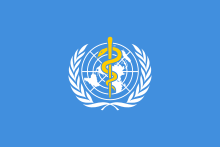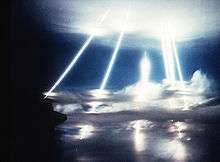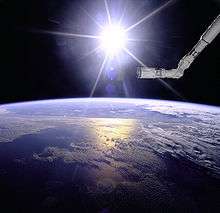
We physicians who shepherd human life from birth to death have a moral imperative to resist with all our being the drift toward the brink. The threatened inhabitants on this fragile planet must speak out for those yet unborn, for posterity has no lobby with politicians.
Dr. Bernard Lown (born 7 June 1921) is the original developer of the modern defibrillator and is an internationally known peace activist. He was one of the founders of Physicians for Social Responsibility, and with Yevgeniy Chazov, a co-founder of International Physicians for the Prevention of Nuclear War, which won the 1985 Nobel Peace Prize.
Quotes
Nobel Peace Prize acceptance (1985)

As no national interest would justify inflicting genocide on the victim and suicide on the aggressor, a prevalent misconception is that nuclear war will never be fought… but in no previous epoch were adversaries so continuously and totally mobilized for instant war.

It is a statistical certainly that hair-trigger readiness cannot endure as a permanent condition.
- We physicians who shepherd human life from birth to death have a moral imperative to resist with all our being the drift toward the brink. The threatened inhabitants on this fragile planet must speak out for those yet unborn, for posterity has no lobby with politicians.
- Summits like those in Geneva promote hope. But hope without action is hopeless. Our enthusiasm for the positive spirit in these deliberations must not blind us to the absence of genuine progress toward disarmament. Twenty-four nuclear bombs are being added weekly to world arsenals.
- We physicians protest the outrage of holding the entire world hostage. We protest the moral obscenity that each of us is being continuously targeted for extinction. We protest the ongoing increase in overkill. We protest the expansion of the arms race to space. We protest the diversion of scarce resources from aching human needs. Dialogue without deeds brings the calamity ever closer, as snail-paced diplomacy is outdistanced by missile-propelled technology. We physicians demand deeds to implement further deeds which will lead to the abolition of all nuclear weaponry.
We recognise that before abolition can become a reality, the nuclear arms race must be halted.
- We physicians have focused on the nuclear threat as the singular issue of our era. We are not indifferent to other human rights and hard-won civil liberties. But first we must be able to bequeath to our children the most fundamental of all rights, which preconditions all others; the right to survival.
- Alfred Nobel believed that the destructiveness of dynamite would put an end to war. He deeply believed that the tragic reality of mass carnage would achieve results which all the preaching of peace and goodwill had so far failed to achieve. His prophecy now must gain fulfillment. Recoiling from the abyss of nuclear extermination, the human family will finally abandon war. May we learn from barbaric and bloody deeds of the twentieth century and bestow the gift of peace to the next millennium. Perhaps in that way we shall redeem some measure of respect from generations yet to come. Having achieved peace, in the sonorous phrase of Martin Luther King, Jr. spoken here twenty-one years ago, human beings will then "rise to the majestic heights of moral maturity".
A Prescription for Hope (1985)

The imagined enemy is eventually banished from the human family and reduced to an inanimate object whose annihilation loses all moral dimension.

Paranoid fantasies of a dehumanized adversary cannot withstand the common pursuit of healing and preventing illness.
.jpg)
We must convince each generation that they are but transient passengers on this planet earth. It does not belong to them. They are not free to doom generations yet unborn. They are not at liberty to erase humanity's past nor dim its future.

The reason, the creativeness, and the courage that human beings possess foster an abiding faith that what humanity creates, humanity can and will control.
- The hope of a benevolent civilization was shattered in the blood-soaked trenches of the First World War. The "war to end all wars" claimed sixteen million lives, and left embers which kindled an even more catastrophic conflagration.
Over the sorry course of 5,000 years of endless conflicts, some limits had been set on human savagery. Moral safeguards proscribed killing unarmed civilians and health workers, poisoning drinking waters, spreading infection among children and the disabled, and burning defenseless cities. But the Second World War introduced total war, unprincipled in method, unlimited in violence, and indiscriminate in victims. The ovens of Auschwitz and the atomic incineration of Hiroshima and Nagasaki inscribed a still darker chapter in the chronicle of human brutality. The prolonged agony which left 50 million dead did not provide an enduring basis for an armistice to barbarism. On the contrary, arsenals soon burgeoned with genocidal weapons equivalent to many thousands of World War II's.
The advent of the nuclear age posed an unprecedented question: not whether war would exact yet more lives but whether war would preclude human existence altogether.
- Every historic period has had its Cassandras. Our era is the first in which prophecies of doom stem from objective scientific analyses.
- Martin Buber suggested that evil prevailed because of the inability of man to imagine the real. Yet human beings do have that capacity. Lord Byron, a poet favored by Alfred Nobel, captured the stark essence of a post-nuclear world in his poem "Darkness":
- I had a dream, which was not all a dream.
The bright sun was extinguished, and the stars
Did wander darkling in the eternal space,
Rayless, and pathless; and the icy Earth
Swung blind and blackening in the moonless air;
Morn came and went — and came, and brought no day,...
All earth was but one thought — and that was Death…
- I had a dream, which was not all a dream.
- As no national interest would justify inflicting genocide on the victim and suicide on the aggressor, a prevalent misconception is that nuclear war will never be fought. But the realities of our age compel an opposite assessment. In no previous epoch were adversaries so continuously and totally mobilized for instant war. It is a statistical certainly that hair-trigger readiness cannot endure as a permanent condition. Furthermore, the unrelenting growth in nuclear arsenals, the increasing accuracy of missiles, and the continuing computerization of response systems all promote instabilities which court nuclear war by technical malfunction; by miscalculation, human aberration or criminal act.
- Throughout human history, when confronted with what was deemed a deadly enemy, the fixed human response has been to gather more rocks, muskets, cannons, and now nuclear bombs. While nuclear weapons have no military utility — indeed they are not weapons but instruments of genocide-this essential truth is obscured by the notion of an "evil enemy". The "myth of the other", the stereotyping and demonizing of human beings beyond recognition, is still pervasive and now exacts inordinate economic, psychologic, and moral costs. The British physicist P.M.S. Blackett anticipated this state of paranoia: "Once a nation bases its security on an absolute weapon, such as the atom bomb, it becomes psychologically necessary to believe in an absolute enemy". The imagined enemy is eventually banished from the human family and reduced to an inanimate object whose annihilation loses all moral dimension.
- Perhaps the signal accomplishment of the IPPNW has been the broad-based, free-flowing dialogue between physicians of the two contending power blocs. We heed Einstein's words, "Peace cannot be kept by force. It can only be achieved by understanding". In a world riven with confrontation and strife, IPPNW has become a model for cooperation among physicians from East and West, from North and South. Paranoid fantasies of a dehumanized adversary cannot withstand the common pursuit of healing and preventing illness.
- Combatting the nuclear threat has been our exclusive preoccupation, since we are dedicated to the proposition that to insure the conditions of life, we must prevent the conditions of death. Ultimately, we believe people must come to terms with the fact that the struggle is not between different national destinies, between opposing ideologies, but rather between catastrophe and survival. All nations share a linked destiny; nuclear weapons are their shared enemy.
- We must hold fast to the dream that reason will prevail. The world today is full of anguish and dread. As great as is the danger, still greater is the opportunity. If science and technology have catapulted us to the brink of extinction, the same ingenuity has brought humankind to the boundary of an age of abundance.
Never before was it possible to feed all the hungry. Never before was it possible to shelter all the homeless. Never before was it possible to teach all the illiterates. Never before were we able to heal so many afflictions. For the first time science and medicine can diminish drudgery and pain.
Only those who see the invisible can do the impossible. But in order to do the impossible, in the words of Jonathan Schell, we ask "not for our personal survival: we ask only that we be survived. We ask for assurance that when we die as individuals, as we know we must, mankind will live on".- Though sometimes quoted as if he were author of it, the expression "Only those who see the invisible can do the impossible" is one that greatly predates Lown's use of it; it has also been attributed to Thomas Jefferson, Jesus and Mrs. Charles E. Cowman, but the earliest published expression yet located seems to have been one by American Baptist minister Rev. Robert Stuart MacArthur in Royal Messages of Cheer and Comfort Beautifully Told (1909) edited by Sarah Conger Robinson, p. 58
- If we are to succeed, this vision must possess millions of people. We must convince each generation that they are but transient passengers on this planet earth. It does not belong to them. They are not free to doom generations yet unborn. They are not at liberty to erase humanity's past nor dim its future. Only life itself can lay claim to sacred continuity. The magnitude of the danger and its imminence must bring the human family together in common pursuit of peace denied throughout the century. On the threshold of a new millennium the achievement of world peace is no longer remote, for it is beckoned by the unleashing of the deepest spiritual forces embedded in humankind when threatened with extinction. The reason, the creativeness, and the courage that human beings possess foster an abiding faith that what humanity creates, humanity can and will control.
External links
- Dr. Bernard Lown's Official Website
- The Lown Cardiovascular Research Foundation
- A Heart Doctor With an Extra Big Heart
- Prescription for Survival -- interview from the public radio program "Living On Earth"
- The Lost Art of Healing -- interview from the public radio program "Humankind"
This article is issued from
Wikiquote.
The text is licensed under Creative
Commons - Attribution - Sharealike.
Additional terms may apply for the media files.